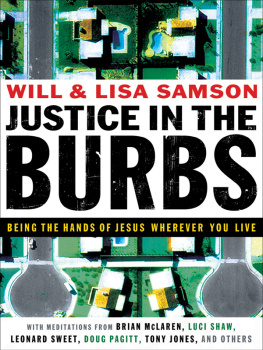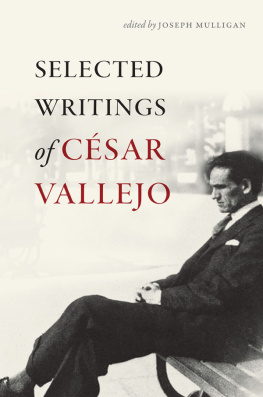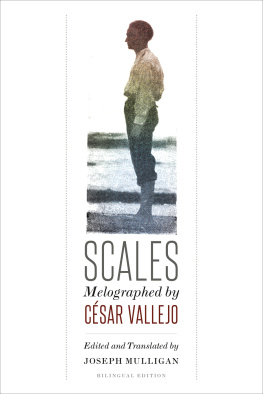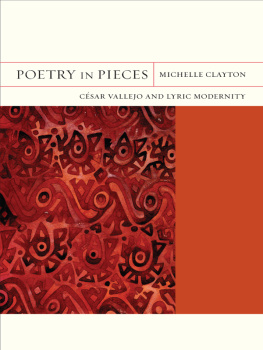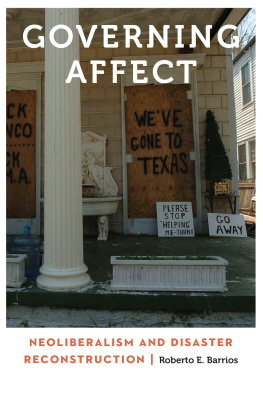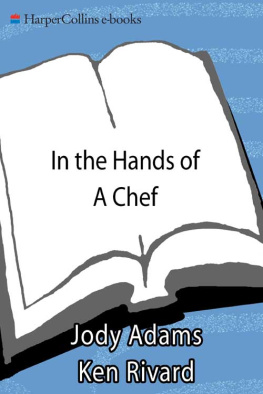Stanford University Press
Stanford, California
2012 by the Board of Trustees of the Leland Stanford Junior University. All rights reserved.
No part of this book may be reproduced or transmitted in any form or by any means, electronic or mechanical, including photocopying and recording, or in any information storage or retrieval system without the prior written permission of Stanford University Press.
Printed in the United States of America on acid-free, archival-quality paper.
Library of Congress Cataloging-in-Publication Data
Agius Vallejo, Jody, author.
Barrios to burbs : the making of the Mexican-American middle class / Jody Agius Vallejo.
pages cm
Includes bibliographical references and index.
ISBN 978-0-8047-8139-8 (cloth : alk. paper)
ISBN 978-0-8047-8866-3 (pbk : alk. paper)
1. Middle class Mexican Americans. 2. Mexican AmericansSocial conditions. 3. Social mobilityUnited States. I. Title.
E184.M5A64 2012
973'.046872dc23
2012004369
ISBN: 978-0-8047-8316-3 (electronic)
Typeset by Westchester Book Group in 10/14 Minion
Foreword
SOMETIME IN THE SUMMER OF 2008, I received a scolding email from a graduate student named Jody Agius Vallejo. I wish I kept a copy of the message, but its content would forever stay with me. See, I write a column called Ask a Mexican! in which I answer any and all questions about Americas spiciest and largest minority, and its a column that has won multiple awards from civil rights organizations for its searing indictment of American societys stereotypical views of Mexicans. The only people who dont like the column are humorless fogies or bona fide racistsand now here was a graduate student daring to tell me what I was doing wrong!
Vallejo wondered why I always portrayed Mexicans as poor, why I never bothered to cover middle-class Mexican Americans in my column. See, she was doing her dissertation at the University of California, Irvine, about middle-class Mexican Americans, and Vallejo felt that it was a group long ignored by academics and journalists alike. I wanted to dismiss her as a pendeja, as one of those types of Mexicans, the type embarrassed by working-class immigrantsand I dont really like those people. But something about Vallejos confidence caught my attention, so rather than blast her in my column or even privately, I suggested she interview mea middle-class Mexican Americanabout my life.
Yes, America: the grand defender of poor Mexicans in this country works in a white-collar profession. How bourgeois!
Vallejo came to my offices in the city of Santa Ana, California, statistically one of the most Latino and poorest cities in the United States with a population of over 100,000. And the young graduate student proceeded to destroy every assumption I might have had about her. She wasnt Latina for one but rather of Maltese and Italian descent. Vallejo wasnt priggish but rather pleasant, with a good sense of humor and a thorough understanding of her projectI would throw her questions to see if she knew the lay of the land about middle-class Mexican Americans in Southern California, and she not only knew the basics but also the essentials. We talked for a couple of hours, and I wished her success on her dissertation, asking to keep me posted on any academic journals that might publish her work.
Again, Vallejo blew me away. Not only did she get her work published in prestigious journals but she managed to turn her dissertation into the book youre holding right now. Not only did she publish an academic book but one that did the impossible: translate dense academic jargon, statistics, and theories into a readable narrative, that rare egghead tome that transcends its ivory tower origins to cross over into the mainstream. And not only did Barrios to Burbs sell, it sold so well that it inspired Stanford University Press to release it as a paperback in response to the demand.
And all this from a person whom I initially dismissed as a clueless crank. Only in this modern-day America!
...
Theres an urban legend in the realm of Chicano Studies thats so searing in its indictment of academia that Im sure its false. It involves an apocryphal interview done at the height of the Chicano movement in the 1960s, when all America was parachuting into the Southwest to examine this newfound ethnic group yearning to breathe free of stereotypes. Supposedly, a reporter interviewed an activistthe reporters name is never told, nor that of activist, as is the wont of urban legends. But the participants dont matter so much as what the activist supposedly said: The only people who ever care about us are the cops and the academics.
At least the cops have the dignity to divide Mexican Americans into the good kind and the bad kind. But if youve read one book on Mexican immigrants by sociologists, youve read them all. They rarely stray from a narrative depicting the immigrants as poor victims kept down by a toxic mixture of gabachos, Aztecs, and the Catholic Church, a narrative that hasnt fundamentally changed since the Black Legend.
Thats what makes Barrio to Burbs not only a great read but mandatory reading for anyone wishing to understand what the future of this country will look like when Latinos are not only the largest minority group in the United States but a majority in many regions. Naysayers insist the masses of poor Mexican migrants that crossed into the United States over the past twenty-five years will remain impoverished and drag down los Estados Unidos with it. But Vallejo is a voice in the academic wilderness, a reverse Cassandra: not only will things go okay with Mexican-Americans, they will go exactly as they have for other immigrant groups in this country. And as silly at it is to type or read those words, this insight is downright revolutionary: few other academics working within the realm of Mexican-Americans in this country are so brave as to take this position. Trust me: not only have I read all the contemporary work on Chicanos, Ive probably gotten drunk with many of those authors.
Whats best about Vallejos work is how relatable it is. Oh, shell impress any lover of quantitative gobbledygook with stats and facts picked from many sources, but its the anecdotes she was able to wring out of her interview subjects that linger, that have brought her attention almost unheard of for a young professor, with profiles in major magazines and appearances on public radio. These are stories that I myself and so many other middle-class Mexican Americans can relate to: stories of struggles, of embarrassing cases of mistaken identity, but also of triumph, of inspiration, of what is to come. Barrios to Burbs simultaneously serves as a how-to manual for citizens and public officials alike, showing how we can ensure that Mexican Americans move up in social status in this country, and as guide to the state of the modern-day Mexican American experience: a bit rough in the beginning, but ultimately bueno.
Gustavo Arellano
Gustavo Arellano is editor of the OC Weekly, author of Ask a Mexican! and Taco USA: How Mexican Food Conquered America, and a middle-class Mexican American born to parents who grew up in poverty. Take THAT, Know Nothings!



